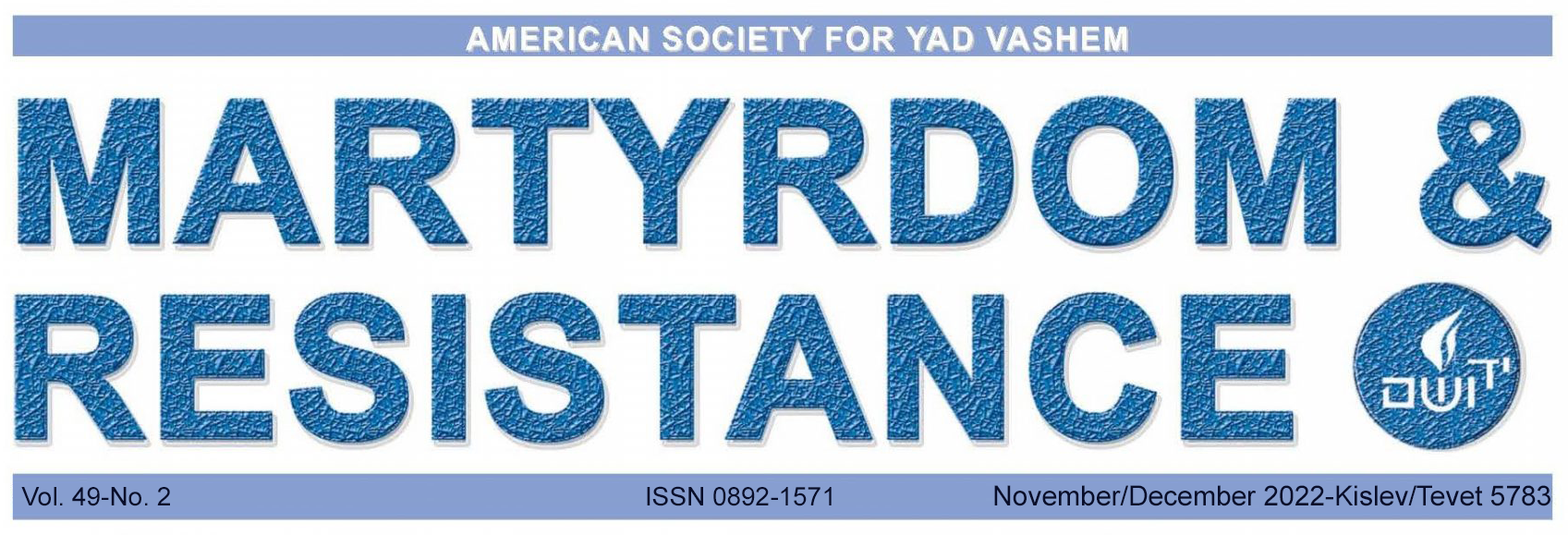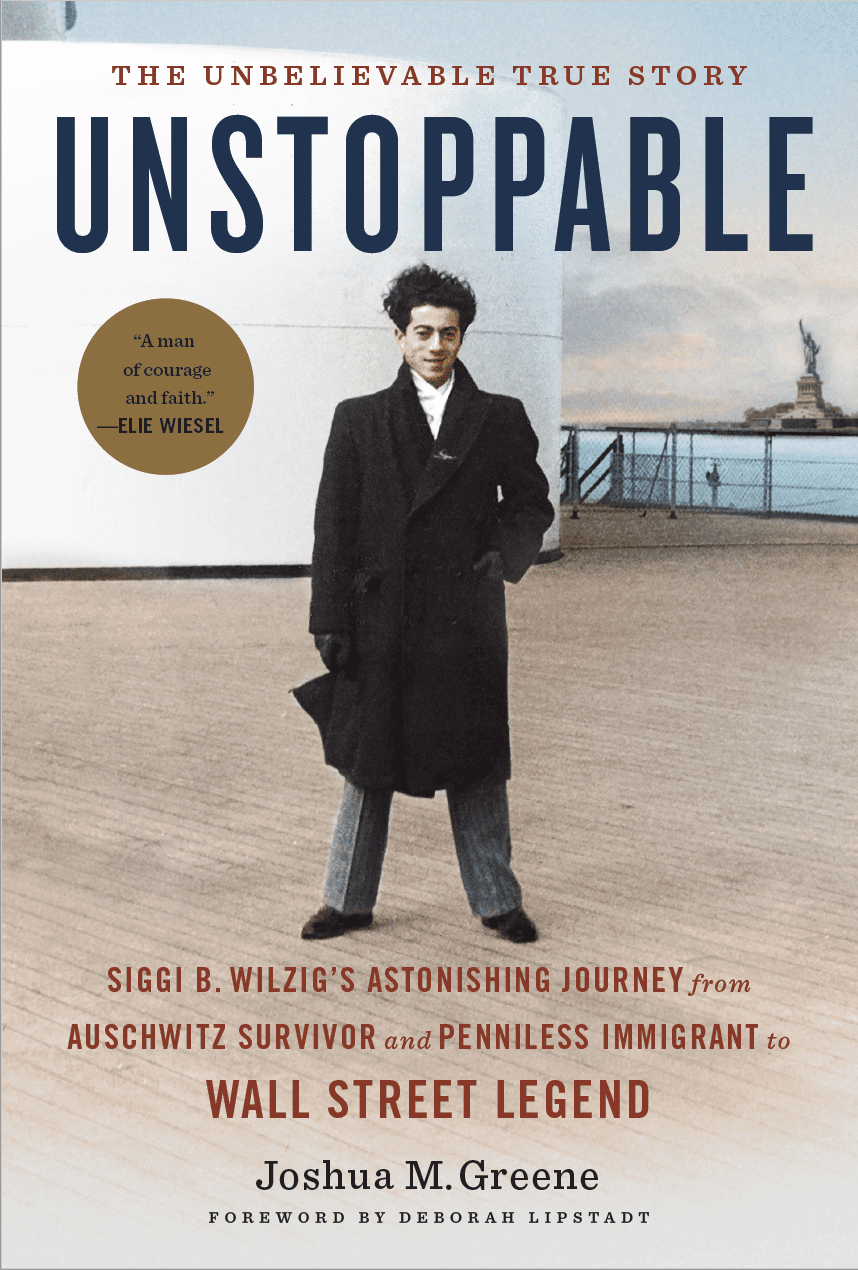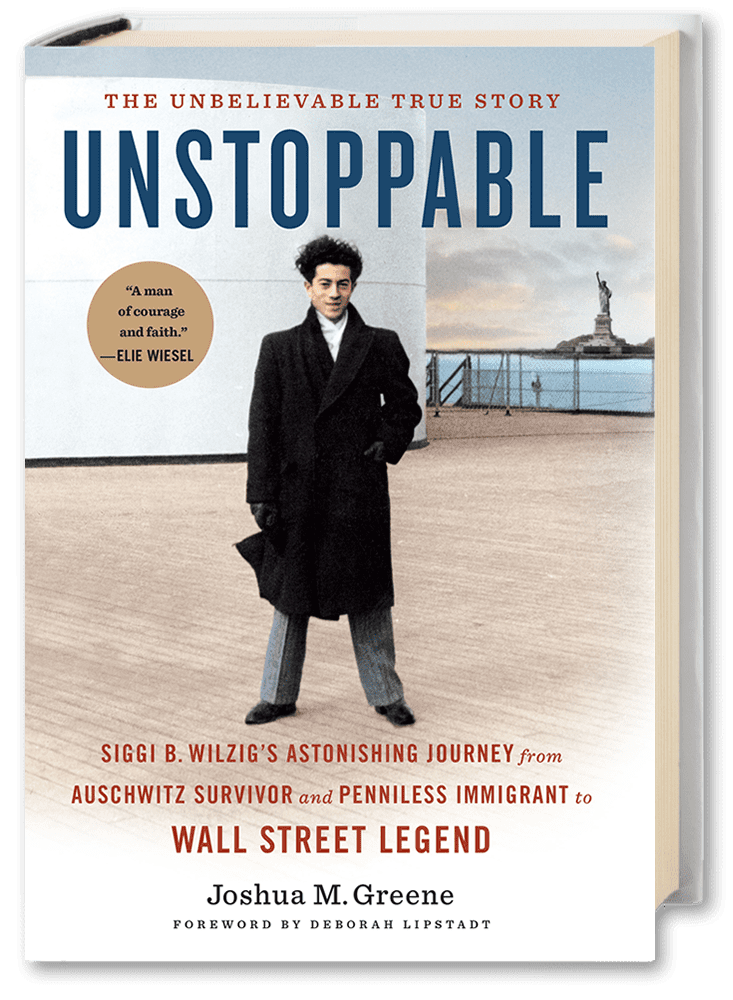
After the war, Siggi promised himself three things. “First, he would never go hungry again. Second, he would marry a Jewish woman, have children, and help rebuild the Jewish people. Third, he would preserve Holocaust memory and speak up whenever he witnessed injustice.” What made these promises he made to himself come true? What made these dreams of a Holocaust survivor become a reality? In reading Joshua M. Greene’s absorbing book, Unstoppable: Siggi B. Wilzig’s Astonishing Journey from Auschwitz Survivor and Penniless Immigrant to Wall Street Legend, we realize it was Siggi’s courage, resourcefulness, and determination – all of it blessed by a God-given instinct for making the right decision at the right time. In fact, those characteristics of his and that blessing from above had always made the difference…
In Auschwitz and later Mauthausen, Sigbert (in America, Siggi), a teenager from the West Prussian village of Krojanke, Germany, immediately stripped of his family upon arrival in Auschwitz, also immediately and intuitively realized that making himself
“useful” to the camp’s Nazi overlords would be wise. Thus, when asked by them if he was a master toolmaker, barely thinking,
he quickly answered in the affirmative. The same happened later when he was asked if he was a bricklayer or a carpenter. Was he any of those things? No! But he would somehow do the job… and live. Then, luckier still, he met and befriended another

German Jew, “six years his senior,” Lothar Nartelski. Lothar worked in “Canada,” a place where “clothing, shoes, valises and other items confiscated from arriving prisoners were sorted and stored.” Working there was a “plum” job. Not only were you inside and safe from the elements, but there were opportunities here for starving Jews to find food, money, and more hidden in shoes, pockets, and bags. Lothar went dangerously out of his way to get Siggi a job there — and Siggi never forgot that. For years after the war Siggi would say “By getting me that job, he [Lothar] saved my life.”
Not surprisingly, when he came to America in 1947, Siggi — with only $240 in his pocket — quickly realized all the opportunities America afforded its people. So while his earliest jobs included shoveling snow, cleaning sweatshop toilets, and selling neckties — that was only where he began. Regardless of the fact that he only had a grammar school education, his developing interest in the stock market led him to diligently study Its workings and conscientiously learn all he could. The result: with the years he became the CEO of a New York Stock Exchange-listed oil company. After that, his interest in banking and all it could do for his oil company led him to learn all he could about banking. The result in this case: With the years he become the head of a commercial bank, which because of his “unstoppable” efforts ended up turning profits it had never seen before! And all this he did in industries — the oil business and banking — known in the postwar years for their anti-Semitism.
Meanwhile, Siggi met Naomi Sisselman of Newark, New Jersey, through a fruit and vegetable vendor who noticed the young lady and gave her phone number to Siggi. They — Siggi and Naomi — “liked each other immediately.” True, her parents didn’t particularly care for him. Why? He was a (Continued on page 10)
(continued from page 7)
…refugee. He was still quite poor. Additionally, his lack of education didn’t bode well for the future. Naomi, however, saw Siggi as “exotic. sensual, independent, and entrepreneurial.” So when it looked as though Naomi’s parents wouldn’t allow them to marry, they agreed to elope. Thankfully, the story ended happily, as her parents finally did accept him. And then came their three children…
Needless to say, Siggi was a very busy man. But he never forgot the losses his family suffered because of the Holocaust; by his calculation, “fifty-nine family members.
Nor did he forget our six million. He began to give talks on the Holocaust, making it real to those who hadn’t experienced it — something only a survivor can do. Particularly memorable is the talk he gave at West Point – the first by any survivor. When it came to what he saw as an injustice to the memory of our murdered coreligionists, Siggi eagerly took to the airwaves to try to change President Reagan’s mind as regards visiting Bitburg – the cemetery where a number of Waffen SS, Hitler’s elite police force, were buried.
In later years, he fearlessly took on Holocaust “deniers,” underlining the danger
they presented to all of us.
Finally, in the foreword to this book Deborah Lipstadt, Dorot Professor of Modern Jewish History and Holocaust Studies at Emory University. and a well-known award-winning writer and Holocaust historian herself, summarizing Siggi’s life. writes, “Siggi rose from the ashes, never gave up, and always moved forward ” Indeed were it necessary to find one word that describes this book and Siggi’s story, it would be: inspiring.
REVIEWED BY DR. DIANE CYPKIN
Emeritus Professor at Pace University

